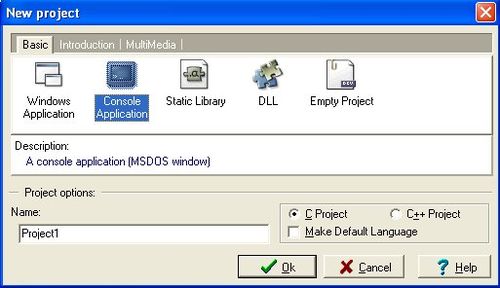Programs With Multiple Files Dev C++
- Whenever in a.c file you need to use the functions defined in another.c, you will #include the corresponding header; then you'll be able to use the functions normally. All the.c and.h files must be added to your project; if the IDE asks you if they have to be compiled, you should mark only the.c for compilation. Quick example: Functions.h.
- Apr 01, 2014 In this tutorial I want to cover the topic of creating class hierarchies and projects with multiple files. This topic is not often covered in any detail. C courses sometimes tell students to.
Multiple File Programs. C / C Forums on Bytes. Thank you for the help, I figured it was something basic I was missing. I wasn't putting the 'using namespace std;' line in the.h or.cpp files for the classes.
The most basic multi-module monster project in C programming has two source code files. Each file is separate — written, saved, and compiled individually — but eventually brought together as one unit by the linker. The linker, which is part of the build process in Code::Blocks, is what creates a single program from several different modules.
What’s a module?
A module is a source code file and its compiled object file. Together, the source code and object files are a module. Then the various object files are linked to build a program. The entire operation starts with separate source code files.
THE MAIN.C SOURCE CODE FILE
Exercise 1: Fire up a new project in Code::Blocks named ex2401. Create the project as you normally would: Type the source code from The main.c Source Code File into the editor as the contents of the main.c file. Save the file.
Don’t build yet! After all, the code references the second() function, which doesn’t seem to exist anywhere. It’s prototyped, as is required for any function that’s used in your code, but the second() function is found in another module. To create that module in Code::Blocks, follow these steps:
Save the current project, ex2401.
Choose File→New→Empty File.
Click the Yes button when you’re prompted to add the file to the active project.
The Save File dialog box appears.
Type alpha.c as the filename and then click the Save button.
The new file is listed on the left side of the Code::Blocks window, beneath the Sources heading where the main.c file is listed. A new tab appears in the editor window, with the alpha.c file ready for editing.
Click the alpha.c tab to begin editing that file.
Type the source code from The alpha.c Source Code File into the alpha.c file in Code::Blocks.
Save the ex2401 project.
Build and run.
THE ALPHA.C SOURCE CODE FILE
Here’s the output you should see in the test window on your computer:
The two source code files aren’t “glued together” by the compiler; each source code file is compiled individually. A separate object code file is created for each one: main.o and alpha.o. It’s these two object code files that are then linked together, combined with the C standard library, to form the final program.
It has a function list to not get lost and it allows edition on resource files.If you want to replace certain lines or facilities Dev-C provides a useful tool to find the elements you desire. It is compatible with compiler to increase the performance.In order to compile better, it integrates debugging for depurate bad lines in your codes with GDB project. Dev c++ 4.9.9.2 free download. You can add additional content to the software like different libraries in order to expand its possibilities. In order to do your work simpler you can import different templates for your projects.Make it simpleIn Dev-C you can create C complements like DLLs or static libraries to make system utilities like games or diverse applications. It can assist the coder with the Code Completion feature which can autocomplete certain lines when is necessary.C programming language is used for plenty of reasons like its compatibility with a great range of operating systems and the influence it has over the time on modern computer languages.
The main module for a multi-module C program is traditionally named main.c. That’s probably why Code::Blocks names the first (and, often, only) project source code file main.c.
Only source code files contained within the same project — found beneath the Sources branch — are linked together.
To compile and link source code files in a terminal window, use the following command:
This command compiles the source code files main.c and alpha.c, links together their object files, and then creates as output (-o) the program file ex2401.
- C++ Basics
- C++ Object Oriented
- C++ Advanced
- C++ Useful Resources
- Selected Reading
Program comments are explanatory statements that you can include in the C++ code. These comments help anyone reading the source code. All programming languages allow for some form of comments.
C++ supports single-line and multi-line comments. All characters available inside any comment are ignored by C++ compiler.
Programs With Multiple Files Dev C Windows 10
C++ comments start with /* and end with */. For example −
A comment can also start with //, extending to the end of the line. For example −
When the above code is compiled, it will ignore // prints Hello World and final executable will produce the following result −

Programs With Multiple Files Dev C Pdf
Within a /* and */ comment, // characters have no special meaning. Within a // comment, /* and */ have no special meaning. Thus, you can 'nest' one kind of comment within the other kind. For example −